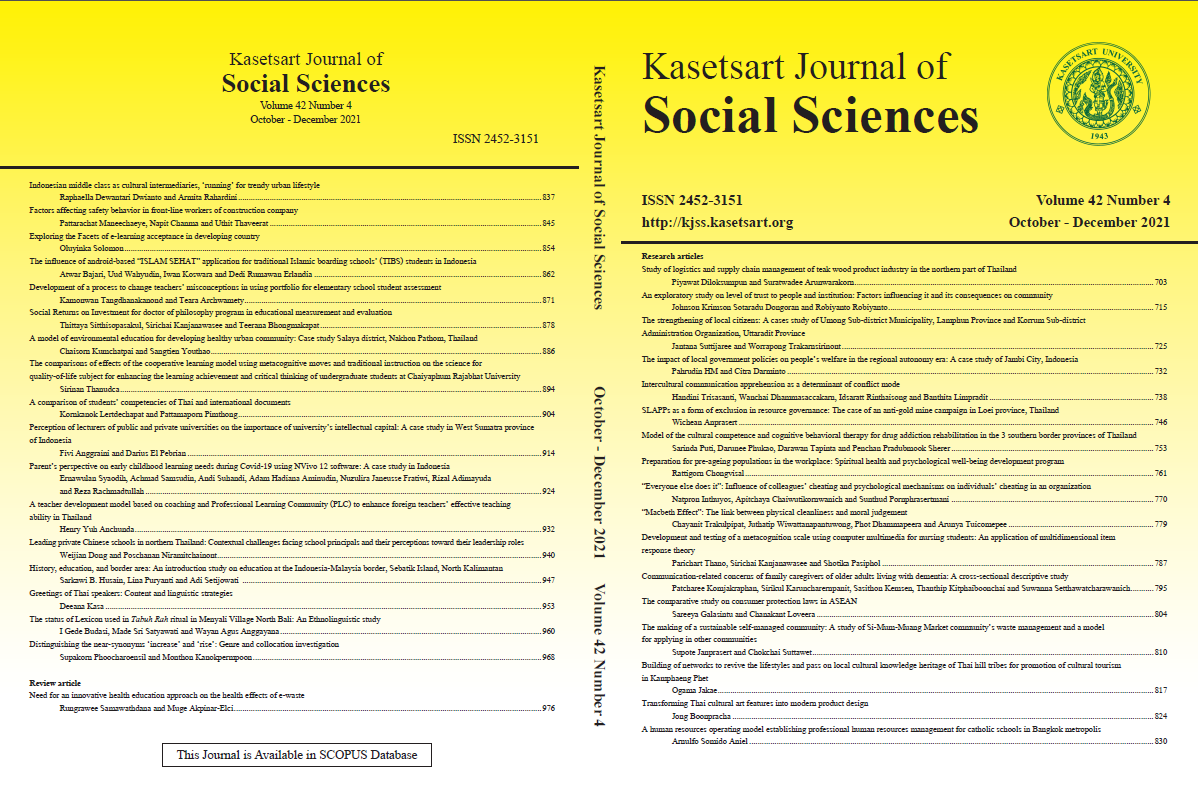“Macbeth Effect”: The link between physical cleanliness and moral judgement
Keywords:
Macbeth effect, moral cleansing, moral judgment, physical cleansing, systematic reviewAbstract
Fourteen years ago, a series of studies by Zhong and Liljenquist (2006) revealed that threatened morality fuels physical cleansing. This so-called Macbeth effect demonstrated that washing one’s hands protected against physical contamination and also alleviated guilt after unethical behaviour. This moral cleansing behaviour retrieved moral self-worth as a means to take responsibility for past misdeeds and bridged the gap between moral self-concepts and perceived selfimagery as a counter-balance to elicit well-being. Extant research on moral cleansing presents a huge gap in the literature. A systematic review was undertaken to examine empirical studies that addressed the link between physical cleanliness and morality. Results showed that physical cleansing and the feeling of cleanliness have the capability to ameliorate one’s guilt after immoral behaviour, reduce prosocial behaviour by changing ethical standards and even promote a clean slate effect. However, failure studies of the Macbeth effect also exist due to disparities in culture, moral identity and methodological limitations. Future research scenarios are offered.
Downloads
Published
How to Cite
Issue
Section
License

This work is licensed under a Creative Commons Attribution-NonCommercial-NoDerivatives 4.0 International License.
This is an open access article under the CC BY-NC-ND license http://creativecommons.org/licenses/by-nc-nd/4.0/










